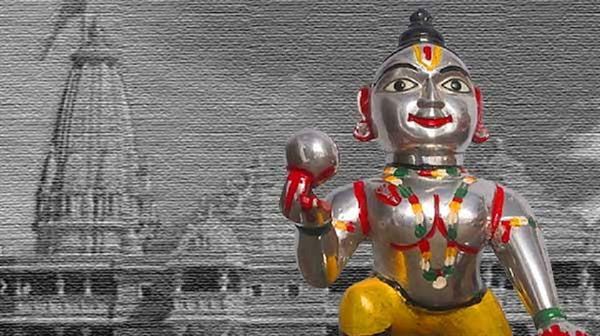The Supreme Court of India on Saturday in a unanimous decision ruled that a disputed land be given to Ram Lalla Virajman, the Hindu infant deity, and
The Supreme Court of India on Saturday in a unanimous decision ruled that a disputed land be given to Ram Lalla Virajman, the Hindu infant deity, and asked the government to form a trust to act as the deity’s guardian.
Interestingly, it did not handover land to Hindu litigants.
The court gave permission to Hindus to build a temple at the site where Babri Mosque was demolished in 1992 in the city of Ayodhya in northern state of Uttar Pradesh.
Under the law, a Hindu deity is considered a “juristic person” with the right to sue and be sued.
Ram Lalla Virajman was represented by a senior advocate K Parasaran in the court. Ram Lalla is the infant form of Lord Ram and is treated as minor under the law. But a deity would not be able to act on its own and needed a guardian.
The Allahabad High Court in 2010 divided the 2.77 acres disputed land into three parts among Ram Lalla Virajman, Nirmohi Akhara — a group of Hindu ascetics devoted to Lord Ram — and the Sunni Waqf Board.
But appeals were filed against the decision in the Supreme Court. Ram Lalla claimed total ownership of the land to build a temple.
After efforts for mediation failed, a constitution bench led by India’s Chief Justice Ranjan Gogoi began hearing in August this year.
With this, Ram Lalla came to center stage in the hearing. A retired Allahabad High Court Judge Devki Nandan Agarwal was the first friend of Ram Lalla. After he passed away in 2002, TP Verma, a retired professor became the next friend of the deity.
In 2010, the apex court appointed Triloki Nath Pandey as his friend.
According to media reports, Ram Lalla Virajman has millions of rupees in his account.
The dispute centers around a site at Ayodhya, where the 16th-century Babri Mosque was demolished in 1992 by Hindus, who see it is as the birthplace of the Hindu god Ram.
The demolition has led to riots and deaths of thousands over the years.
– Babri Mosque
In 1885, a Hindu religious body asked a court for permission to construct a temple to honor the Hindu deity Ram inside the premises of the Babri Mosque, said to have been built by Mughal Emperor Babur in 1526, but the permission was denied.
In 1949, a group of Hindus entered the mosque premises and installed an idol of Ram there. Declaring the area disputed land, the government placed the premises under lockdown, with the idol remaining inside with one official and one Hindu appointed stewards of the grounds.
In 1986, the local Faizabad administration opened the premises to Hindus, allowing them to carry out their rituals.
In December 1992, thousands of activists from extremist Hindu groups and political parties along with Bharatiya Janata Party (BJP) leaders entered the mosque and demolished it, erecting a Hindu temple in its place.
